Jewish groups have criticised the result of the Swiss referendum in favour of banning the building of minarets on mosques.
The Swiss Federation of Jewish Communities has been vocal against the ban. Dr Herbert Winter, its president, said: “As Jews we have our own experience. For centuries we were excluded: we were not allowed to construct synagogues. We do not want that kind of exclusion repeated.”
British and international Jewish groups have also condemned the result of the referendum.
A spokeswoman for the Board of Deputies said: “We do not seek to interfere in the affairs of other countries but must condemn intolerance wherever it occurs. Swiss Muslims should be made to feel at home in Switzerland, just as we hope that Muslims, Jews and other minorities in this country should be allowed to practise their faiths freely and without restraint.”
She added: “In our own country, we have seen the continuing victimisation of Muslims and other minorities by these groups. These have ranged from intimidatory protests outside mosques, to cemetery desecrations, to arson attacks, and even to murder. The Board of Deputies is appalled by such developments and stands with the vast majority of British society who condemn them.”
The New York-based Anti-Defamation League echoed the sentiments of the Board, and said in a statement: “This is not the first time a Swiss popular vote has been used to promote religious intolerance. A century ago, a Swiss referendum banned Jewish ritual slaughter in an attempt to drive out its Jewish population. We share concerns that those who initiated the anti-minaret campaign may now try to further erode religious freedom through similar means.”

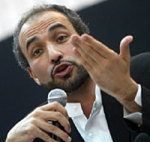 One of Europe’s leading Muslim scholars, Tariq Ramadan, told French lawmakers Wednesday they were failing to address the real problems facing French Muslims by debating whether to ban the burqa.
One of Europe’s leading Muslim scholars, Tariq Ramadan, told French lawmakers Wednesday they were failing to address the real problems facing French Muslims by debating whether to ban the burqa.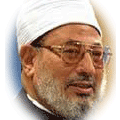 Qatar’s prominent Islamic scholar and chairman of the International Federation of Ulema (IFU) Sheikh Yusuf al-Qaradawi has urged the Muslims of Switzerland to seek the annulment of the ban on the construction of minarets on mosques in that country, according to reports published in the local Arabic press.
Qatar’s prominent Islamic scholar and chairman of the International Federation of Ulema (IFU) Sheikh Yusuf al-Qaradawi has urged the Muslims of Switzerland to seek the annulment of the ban on the construction of minarets on mosques in that country, according to reports published in the local Arabic press.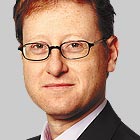 “It’s a crude reaction but it’s the first one I had on hearing that the Swiss had voted to ban the building of minarets on mosques – the same reaction I have to the increasingly-frequent stories like it: how would I feel if this were not about them, but us? How, in other words, would I react if this latest attack were not on Muslims but on Jews?
“It’s a crude reaction but it’s the first one I had on hearing that the Swiss had voted to ban the building of minarets on mosques – the same reaction I have to the increasingly-frequent stories like it: how would I feel if this were not about them, but us? How, in other words, would I react if this latest attack were not on Muslims but on Jews?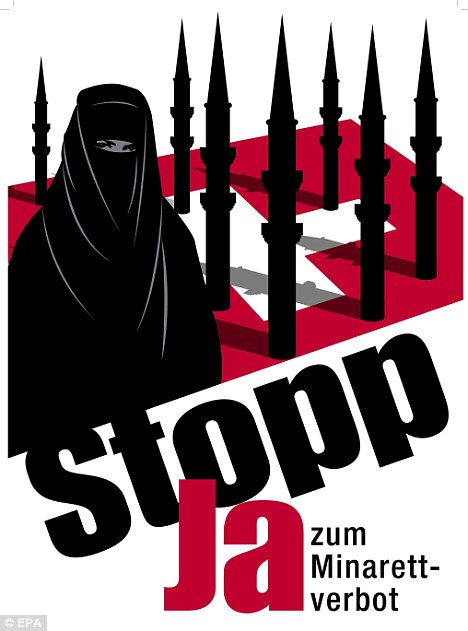 “Over the last two decades Islam has become connected to so many controversial debates – violence, extremism, freedom of speech, gender discrimination, forced marriage, to name a few – it is difficult for ordinary citizens to embrace this new Muslim presence as a positive factor. There is a great deal of fear and a palpable mistrust. Who are they? What do they want? And the questions are charged with further suspicion as the idea of Islam being an expansionist religion is intoned. Do these people want to Islamise our country?
“Over the last two decades Islam has become connected to so many controversial debates – violence, extremism, freedom of speech, gender discrimination, forced marriage, to name a few – it is difficult for ordinary citizens to embrace this new Muslim presence as a positive factor. There is a great deal of fear and a palpable mistrust. Who are they? What do they want? And the questions are charged with further suspicion as the idea of Islam being an expansionist religion is intoned. Do these people want to Islamise our country?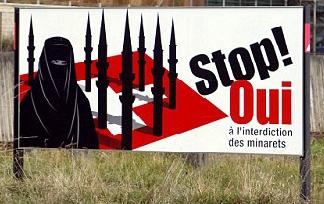 A right-wing campaign to outlaw minarets on mosques in a referendum being held in Switzerland today has received an unlikely boost from radical feminists arguing that the tower-like structures are “male power symbols” and reminders of Islam’s oppression of women.
A right-wing campaign to outlaw minarets on mosques in a referendum being held in Switzerland today has received an unlikely boost from radical feminists arguing that the tower-like structures are “male power symbols” and reminders of Islam’s oppression of women.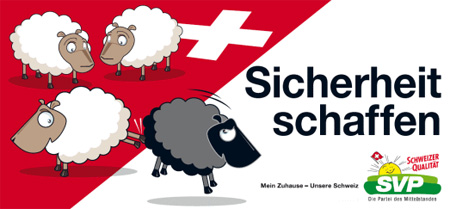 Swiss voters defied their Government and churches today and approved a ban on building minarets — reflecting an alarming hostility to a rising Muslim minority.
Swiss voters defied their Government and churches today and approved a ban on building minarets — reflecting an alarming hostility to a rising Muslim minority.